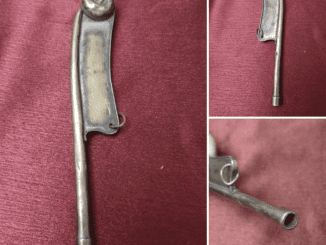Cancer often starts silently, without pain or discomfort, making it easy to ignore early warning signs. However, subtle changes in bathroom habits can signal something serious. Paying close attention to these symptoms might just save your life. Let’s dive into eight critical signs you should never overlook when using the toilet.

1. Greasy or Fatty Stools: A Sign of Pancreatic Cancer
Have you ever noticed your stool looking greasy or feeling unusually sticky? This could be more than just a dietary issue. Fatty stools, also known as steatorrhea, occur when the body fails to absorb fat properly, often due to pancreatic duct blockage caused by tumors.
These stools are not only sticky but often pale in color and foul-smelling. According to Cancer Research UK, these symptoms can be an early sign of pancreatic cancer. If you experience this regularly, it’s essential to consult a doctor.
2. Persistent Red Stools: A Warning of Colorectal Cancer
Red stools can be alarming, but they’re not always linked to cancer. Sometimes, red foods like beets or drinks with artificial coloring can be the cause. However, if you notice persistent redness and it’s not linked to your diet, it could indicate bleeding in the lower intestine.
Blood in the stool, especially when paired with changes in bowel habits, abdominal pain, or unexplained weight loss, is a red flag for colorectal cancer. Even young people are at risk, as this cancer is becoming increasingly common among younger demographics.
3. Dark Brown or Red Stools: Colon Cancer Indicators
Dark brown or dark red stools might suggest bleeding higher up in the digestive tract, potentially pointing to colon cancer. Conditions like diverticulosis, inflammatory bowel disease, or colitis can also cause similar symptoms.
Don’t ignore these changes. A visit to the doctor can help identify the underlying issue before it becomes severe.
4. Black Stools: Linked to Stomach or Colorectal Cancer
Black stools might not seem worrisome at first—they can be caused by iron supplements or foods like blueberries. However, black stools resulting from digested blood can be a sign of gastrointestinal bleeding, potentially linked to stomach or colorectal cancer.
Bleeding from ulcers or cancers higher in the digestive system can cause this discoloration. If you notice this change, schedule a medical check-up right away.
5. Pain During Urination: Kidney or Prostate Cancer Warning
Experiencing sharp pain or discomfort while urinating? This could indicate more than a urinary tract infection. Burning sensations or pelvic pain during urination may point to kidney cancer or prostate cancer.
In some cases, these symptoms might be caused by kidney stones or infections, but it’s always better to err on the side of caution and get them checked out.
6. Foamy Urine: A Sign of Kidney Cancer

If your urine appears foamy or bubbly, it might be due to an excess of protein. This can happen when kidney function is impaired, sometimes as a result of kidney cancer. While foamy urine can also be caused by dehydration or diabetes, it’s wise to have it evaluated by a healthcare professional to rule out serious conditions.
7. Brown Urine: Linked to Liver or Gallbladder Cancer
Brown urine can occur for many reasons, such as dehydration or consuming certain medications. However, it’s also a potential sign of liver or gallbladder cancer. Tumors in these organs can disrupt bile production, causing discoloration in the urine.
If you notice this change alongside symptoms like jaundice or fatigue, seek medical advice immediately.
8. Persistent Diarrhea or Constipation: Early Cancer Warning
Frequent bouts of diarrhea or constipation, particularly when paired with other symptoms like bloating or cramps, can indicate colorectal or stomach cancer. Long-term changes in bowel habits should not be ignored, as they can signal a disruption in normal digestive processes caused by tumors.
Why Early Detection Matters
Many of these symptoms may seem minor or unrelated at first, but they can be critical early warning signs of cancer. Early detection significantly improves the chances of successful treatment and recovery. It’s always better to overreact and seek medical attention than to let these signs go unnoticed.
When Should You See a Doctor?

If you notice any of these symptoms persisting for more than a few days, it’s time to consult a healthcare provider. Keep in mind that not all symptoms mean cancer, but a professional diagnosis is the only way to know for sure.
Conclusion
Cancer may start silently, but your body often gives you subtle warnings—especially when you’re in the bathroom. From greasy stools to dark urine and persistent pain during urination, these signs can reveal underlying health issues. By paying attention to these changes and acting quickly, you could catch potential cancers early and improve your prognosis.
Don’t ignore your instincts. If something feels off, trust yourself and get it checked out. It might just save your life.


